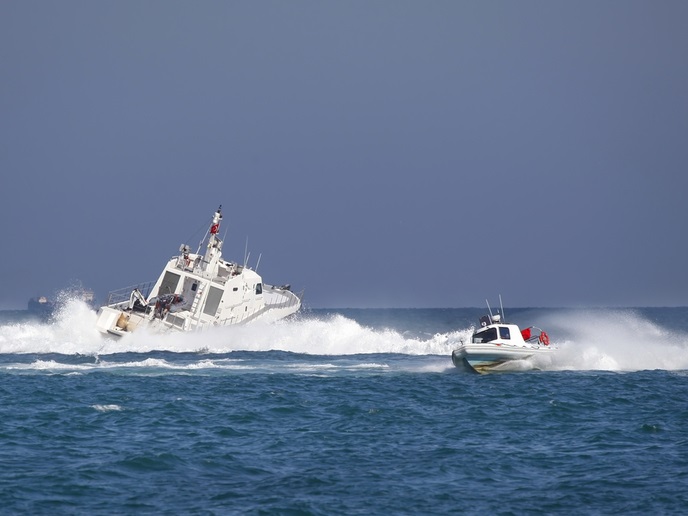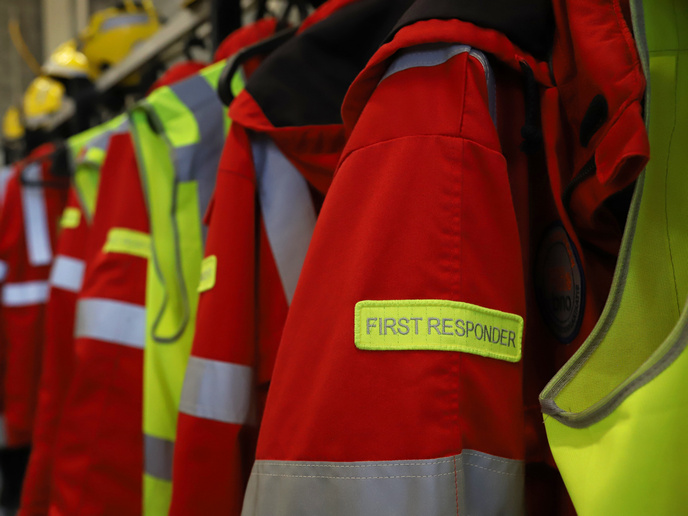Smugglers beware: Big Data informs automated services for detection and tracking
Maritime surveillance helps detect events including migrant smuggling, piracy, illegal fishing and oil spills, and assists in search and rescue operations. It is essential to safety, security and commerce, with global impact. Surveillance entails the Herculean task of monitoring high-traffic regions as far as 370 kilometres from the coastline. The EU-funded PROMENADE project set out to make that easier and more effective with automated solutions for vessel tracking, behaviour analysis and anomaly detection, leveraging AI and big data technologies.
‘Bigger’ and better data
According to project manager Alkis Astyakopoulos from the www.kemea.gr (Center for Security Studies) (KEMEA) of the Hellenic Ministry of Citizen Protection “The challenge was twofold: first, the large-scale exploitation of heterogeneous data sources with AI-based services and secondly, the seamless integration and exchange of information among maritime authorities.” PROMENADE vastly extended the types of data available to its models and services. In addition to conventional positional information provided by large ships via their automatic identification system (AIS) or obtained from land-, air- and sea-based radars, PROMENADE pioneered the use of beacon devices (tracking devices on some high-risk vessels) for vessel behaviour analysis. PROMENADE also integrated imagery from satellites, unmanned aerial vehicles and fixed Earth observation/infrared (EO/IR) cameras. Port traffic data was obtained from the ‘Maritime Single Window’ digital platform for international maritime traffic. Profiles of vessels or shipping companies including information about association with criminal activities (detentions/sanctions, spills, tax evasion, money laundering and terrorist financing) were integrated from open-source intelligence and large databases.
Seamless data integration and exchange
PROMENADE’s AI/big data-based automated services are grouped into five categories: classification, pattern detection, risk assessment, future state prediction and data infrastructure. “Leveraging machine learning and deep neural networks trained with immense historical data, PROMENADE’s AI models can extract patterns and trends formerly difficult or impossible to identify,” explains Astyakopoulos. PROMENADE’s ‘data lake’ infrastructure seamlessly integrates, stores and distributes the heterogeneous data. Furthermore, its services are fully compliant with the ‘Common Information Sharing Environment’ (CISE) data model, a voluntary collaborative initiative in the EU. PROMENADE relies wholly on CISE internally and uses it at the interface with end-users’ legacy infrastructures. “PROMENADE promotes CISE as an industry standard to unleash information sharing and cooperation among cross-border maritime authorities,” Astyakopoulos notes.
Successful irregularity detection in real-world scenarios
The maritime area between Spain and Morocco has long been used by smugglers to bring migrants to Europe and has also become a major narcotic smuggling route. One of the busiest maritime areas in the world, it is particularly challenging to monitor. PROMENADE’s ‘Activity Classification Service’ successfully detected a very fast ‘patera taxi’ – a small boat used for irregular migration, often managed by criminal organisations. The sea around the island of Corfu in Greece is widely used for drug trafficking and more recently for irregular migration and armed smuggling. PROMENADE’s ‘Vessel Detection in Image Data’ service automatically detected, classified and tracked a small vessel typical of smuggling and irregular migration from coastal EO/IR camera images. Furthermore, a Hellenic coast guard van was transformed into an energy-autonomous mobile command-and-control system that uses PROMENADE’s state-of-the-art services. The maritime area near Klaipeda in Lithuania is a site of goods smuggling (mostly tobacco) on cargo/fishing vessels. The smugglers typically switch off their AIS when navigating close to Lithuania’s territorial waters. PROMENADE’s ‘Anomaly Detection’ service timely detected an AIS switch-off event and its ‘Vessel Detection’ service accurately detected, geolocalised and classified the suspicious vessel from tower cameras and unmanned aerial vehicles. PROMENADE’s AI/big data-based services and interoperability will make a step change in the ability of law enforcement and border control authorities to detect and act on anomalies, substantially increasing safety and security in the maritime domain.
Keywords
PROMENADE, AI, smuggling, big data, CISE, heterogeneous data, irregular migration, data lake, maritime domain awareness, maritime surveillance, coast guard







